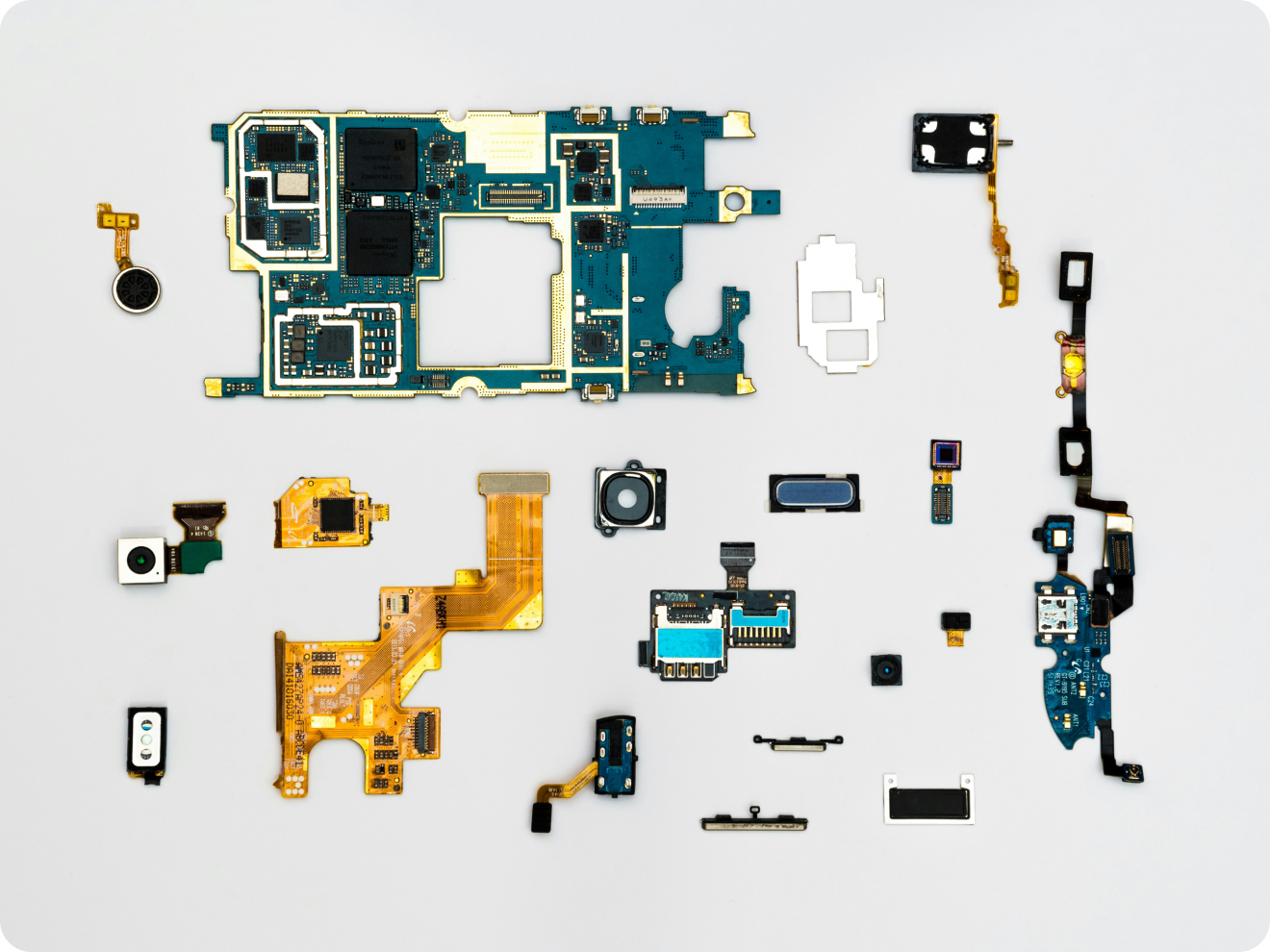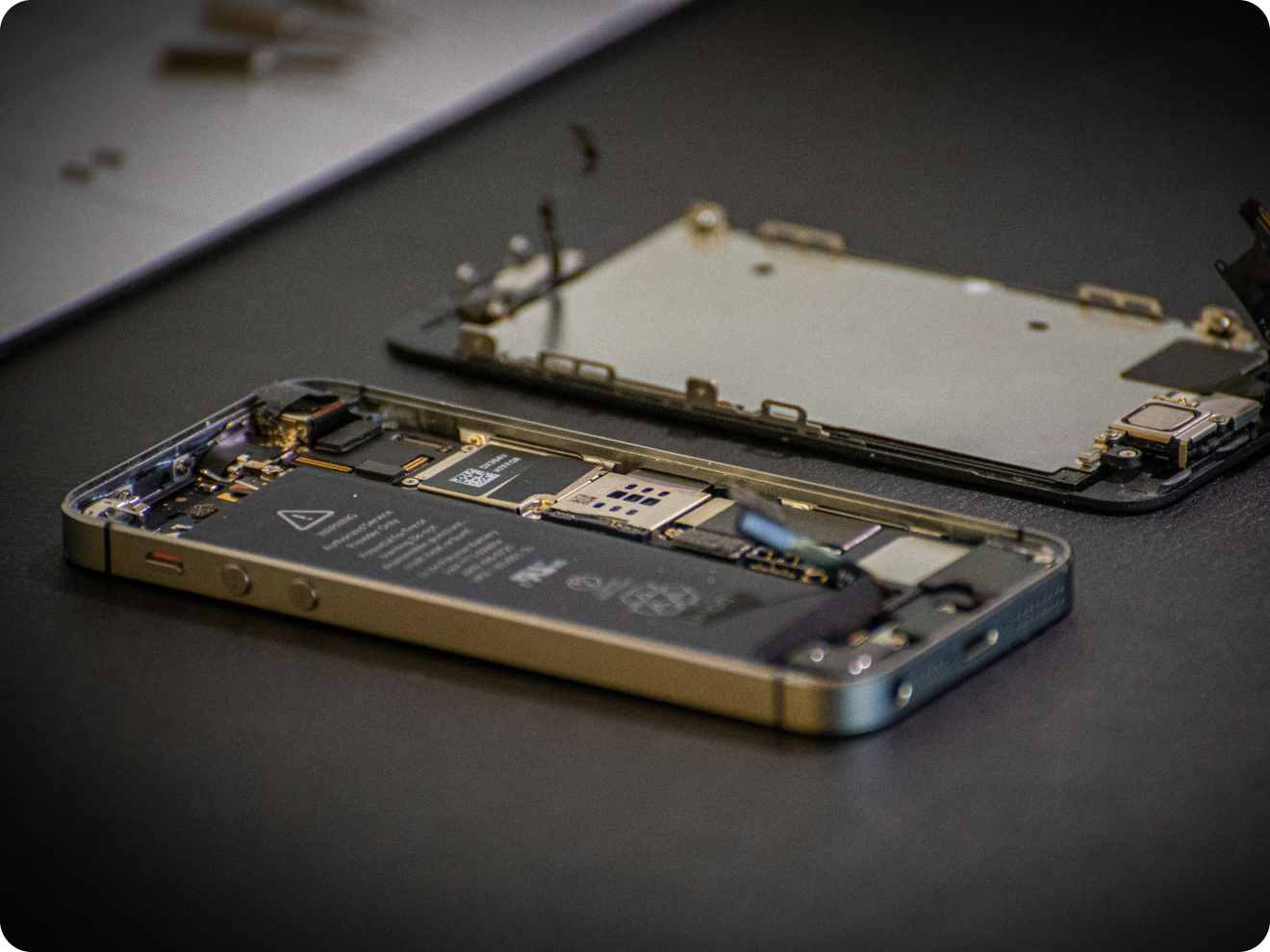Circular workplaces: the triple win for the Dutch government.

‘We don't look at a contract as if we were simply buying a product. We want to get the most sustainable performance out of the market when we enter into contracts,’ says Johan Rodenhuis, Strategic Sustainability Advisor for ICT Werkomgeving Rijk (IWR). ‘To do this, we look at the sum of sustainable business operations, sustainable products, sustainable services and a sustainable supply chain. When all these aspects are in place, we can talk about the most sustainable performance.’
A concrete example of this approach is the IWR contract with Pro Warehouse, which is the only contract holder supplying Apple products to the central government. This three-year contract with a maximum value of 150 million euros has now been running for about a year. Ernest van Minnen, responsible for sales and marketing at Pro Warehouse: ‘By the end of 2024, we will have delivered 272,702 products to 60 different participants, including SSC-ICT, the Tax and Customs Administration, DEF Bestuursdepartement, the Central Agency for the Reception of Asylum Seekers (COA) and IVO Rechtspraak.’
‘For the Apple contract, there is a very strong focus on circularity, because that is where the greatest impact lies,’explains Rodenhuis. That impact is not limited to the environment. ‘Circularity has an exponential effect on CO2emission reduction. But it also strengthens the security domain. Because you gain insight into your supply chain – where your raw materials, materials and components come from – you also have much more control over security within your organisation,’ explains Rodenhuis. 'In the current geopolitical context, this is crucial. By having more control over the origin of your components, you reduce vulnerabilities in your digital infrastructure and become less dependent on potentially risky supply chains. According to Rodenhuis, this approach brings all the elements together: ‘We see that these themes reinforce each other and ultimately become very cost-efficient. It's a win-win-win situation.’

Maximising the life cycle.
At the heart of the circular strategy is a rental model whereby the government does not own the Apple devices but uses them for a certain period of time. ‘Because we are the first users of the devices and use them for a slightly shorter period, they still have a lot of residual value and are in such good condition that they can easily be given a second life,’ says Rodenhuis. According to Pro Warehouse, this model has already led to impressive results. ‘To date, this contract has enabled us to save 100,000 devices from the shredder. Literally,’ says Yannick Bruggenthijs, Team Lead Enterprise and Public at Pro Warehouse.
In addition to the rental model, there is a resale scheme for surplus devices. Rodenhuis: ‘This allows raw materials to be reused and also creates a financial incentive,’ says Rodenhuis. ‘Not only are you being more circular, it's also economically advantageous.’
For every iPhone that has reached the end of its life cycle, Apple has installed an advanced recycling robot (Daisy) in Breda – one of only two in the world. ‘This special robot ensures that all devices are taken apart, instead of being put in an oven to extract only the metals,’ explains Van Minnen. ‘I had the opportunity to see the robot in real life,’ says Rodenhuis. ‘It is an innovative robot that dismantles iPhones to a level that is currently unique in the market. This allows many more raw materials to be recovered.’
Apple is fully committed to recycled and renewable materials, clean electricity and lower-carbon transport, and is working towards a completely CO2-neutral footprint. All these steps together form a path towards a fully circular model. Rodenhuis emphasises that fully circular ICT products do not yet exist, ‘but you can take steps to make that possible in the future.’
“Pro Warehouse is an example of a Dutch company that not only endorses sustainability ambitions, but also actually realises them.”

From policy to performance.
A key aspect of circular IT policy is measurability. This is a major challenge for many sustainability managers, but the government has developed a practical approach to address this. ‘Measurement is essential,’ emphasises Rodenhuis. ‘If you include something in your policy but never look at it again, you have no idea where you stand. You want to move from policy to concrete performance.’
The government therefore systematically measures the impact of all IT contracts. ‘All our criteria are designed in such a way that raw data is easily extracted and can be processed directly in a dashboard,’ explains Rodenhuis. ‘This allows us to see exactly how much CO2 we emit for a product throughout its entire life cycle, what we are reducing and what we need to offset.’ Bruggenthijs confirms the importance of measurability: ‘Making their footprint transparent is a very important part of sustainability managers' work.’ Pro Warehouse supports this with detailed reports. ‘So far, we have offset almost 6,000 tonnes of CO2 emissions under this contract,’ says Van Minnen, based on the Q4 2024 trend report. ‘These kinds of reports are valuable to our customers because they give sustainability managers the opportunity to say: because I made this decision, I achieved this result.’
This measurement data is not only used to track environmental impact, but also to monitor the social aspects of sustainability, says Rodenhuis. ‘We look at how human rights are managed in the chain and at product certifications, such as the EPEAT label for environmental performance.’ All this data helps the government to check whether it is on track with its targets. ‘We have mapped out a clear path from 2019 to 2030. By measuring the CO2 emissions of all our contracts, we can see whether we are following the right trend line and where adjustments are needed.’

The future: autonomy and security.
The government's vision for circular IT goes beyond current contracts. According to Rodenhuis, the importance of this model will only increase, especially from the perspective of strategic autonomy. ‘When we look at the materials in ICT products, one thing is abundantly clear: we have hardly any of these raw materials available in the Netherlands and Europe,’ says Rodenhuis. ‘Our dependence on international trade relations directly affects our autonomy.’ In a time of geopolitical uncertainty, this autonomy is becoming increasingly important. By stimulating the circular economy, the government can gain more control over its value chains.
For the Pro Warehouse contract, this means that materials remain in the cycle longer and there is less dependence on new raw materials. Rodenhuis sees three worlds that reinforce each other: security, circularity and cost efficiency. ‘A circular approach gives us much more insight and control over the entire chain,’ explains Rodenhuis. ‘By keeping raw materials in our own cycle for longer, we not only reduce our dependence, but also strengthen our digital resilience.’ His conclusion is clear: ‘If you link these three aspects properly, you get a much more stable and future-proof IT infrastructure.’
The next steps.
The circular approach has effects that go beyond government buildings. By placing sustainability at the heart of procurement, the government is encouraging the entire market to move in the same direction. ‘We are looking for partners who embrace our objectives, whether they concern climate or circularity,’ explains Rodenhuis. Pro Warehouse plays an important role in this strategy. As the contractor for the Apple contract, the company proves that “most sustainable performance” is not a theoretical concept, but a practical reality. ‘Pro Warehouse is an example of a Dutch company that not only endorses sustainability ambitions, but also actually realises them,’ says Rodenhuis.
The results reported by Pro Warehouse in the first year of the contract confirm this vision. With 272,702 products delivered and almost 6,000 tonnes of CO2 emissions offset, the collaboration demonstrates that sustainability and practical results go hand in hand. ‘By showing practical examples, you create hope and accelerate the transition,’ concludes Rodenhuis. ‘Ultimately, it's about the entire market moving towards a circular economy.’